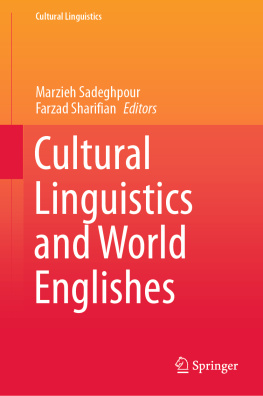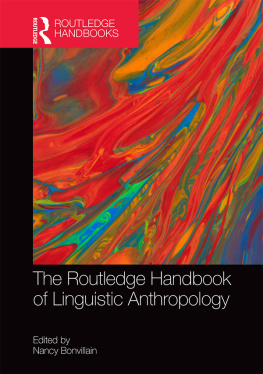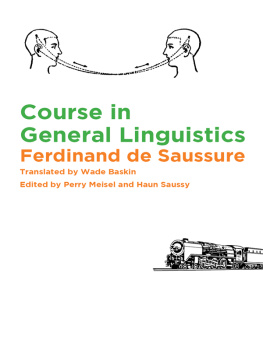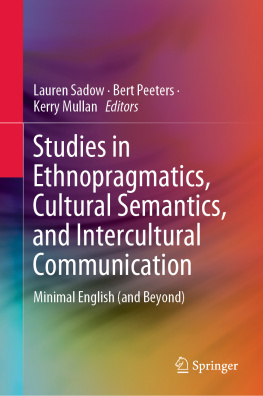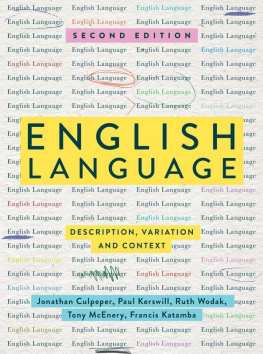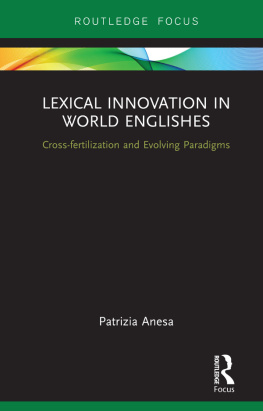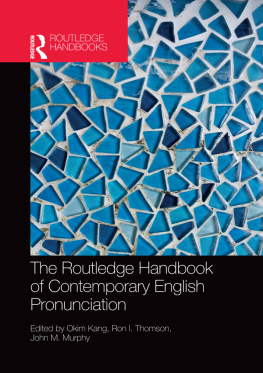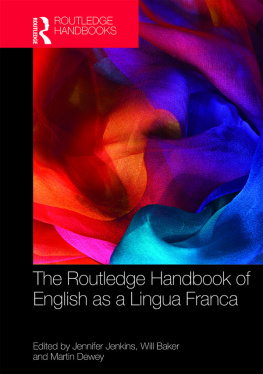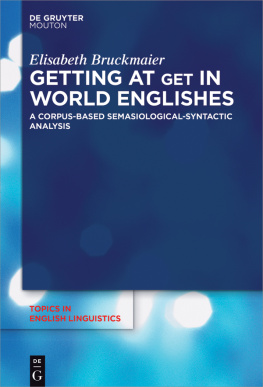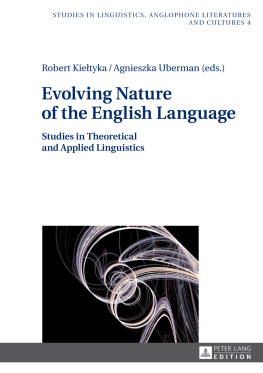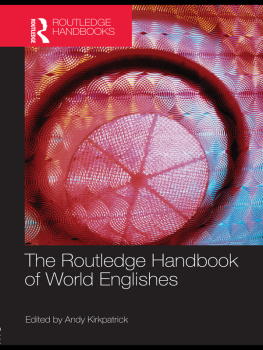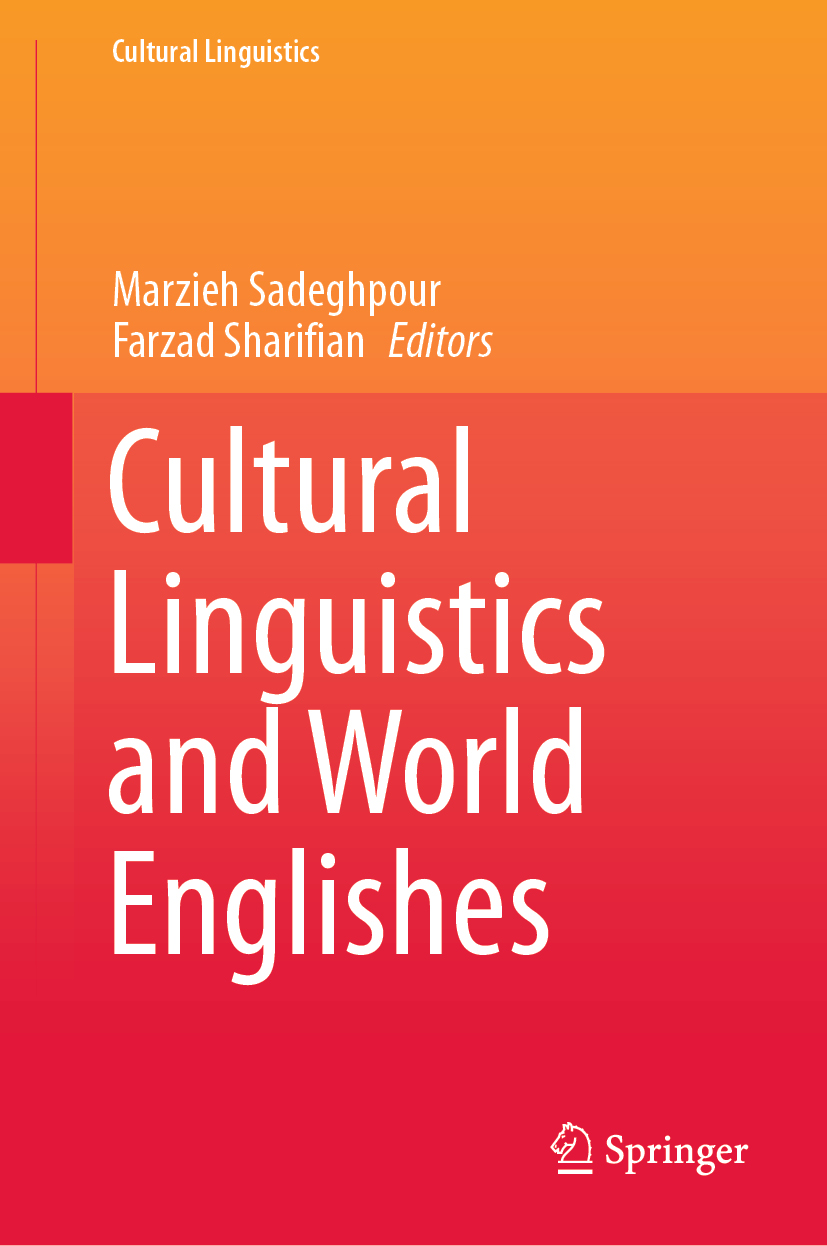Cultural Linguistics was founded by the late Professor Farzad Sharifian, an outstanding, field-defining scholar. The world-renowned linguist launched the series to advance multidisciplinary inquiry into the relationship between language and cultural conceptualisations. Building from his academic legacy, this series champions research that advances our understanding of how features of human languages encode culturally constructed conceptualisations of experience. Cultural Linguistics publishes monographs and edited volumes from diverse but complementary disciplines as wide-ranging as cross-cultural pragmatics, anthropological linguistics and cognitive psychology to present new perspectives on the intersection between culture, cognition and language. Featured themes include:
Cultural conceptualizations and the structure of language
Language and cultural categorization
Language, culture, and embodiment
Language and cultural conceptualizations of emotions
Cultural conceptualizations and pragmatic meaning
Cultural conceptualizations and (im)polite language use
Applied Cultural Linguistics (e.g., Cultural Linguistics and English Language Teaching, Cultural Linguistics and World Englishes, Cultural Linguistics and Intercultural Communication, Cultural Linguistics and Political Discourse Analysis)
Cultural Linguistics was founded by the late Professor Farzad Sharifian, an outstanding, field-defining scholar. The world-renowned linguist launched the series to advance multidisciplinary inquiry into the relationship between language and cultural conceptualisations. Building from his academic legacy, this series champions research that advances our understanding of how features of human languages encode culturally constructed conceptualisations of experience. Cultural Linguistics publishes monographs and edited volumes from diverse but complementary disciplines as wide-ranging as cross-cultural pragmatics, anthropological linguistics and cognitive psychology to present new perspectives on the intersection between culture, cognition and language. Featured themes include:
Cultural conceptualizations and the structure of language
More information about this series at http://www.springer.com/series/14294 Language and cultural categorization
Language, culture, and embodiment
Language and cultural conceptualizations of emotions
Cultural conceptualizations and pragmatic meaning
Cultural conceptualizations and (im)polite language use
Applied Cultural Linguistics (e.g., Cultural Linguistics and English Language Teaching, Cultural Linguistics and World Englishes, Cultural Linguistics and Intercultural Communication, Cultural Linguistics and Political Discourse Analysis)
The series welcomes proposals that fit the description above. For more information about how you can submit a proposal, please contact the publishing editor, Alex Westcott Campbell: alexandra.campbell@springer.com
Editors
Marzieh Sadeghpour
Monash University, Melbourne, VIC, Australia
Farzad Sharifian
Melbourne, VIC, Australia
ISSN 2520-145X e-ISSN 2520-1468
Cultural Linguistics
ISBN 978-981-15-4695-2 e-ISBN 978-981-15-4696-9
https://doi.org/10.1007/978-981-15-4696-9
Springer Nature Singapore Pte Ltd. 2021
This work is subject to copyright. All rights are reserved by the Publisher, whether the whole or part of the material is concerned, specifically the rights of translation, reprinting, reuse of illustrations, recitation, broadcasting, reproduction on microfilms or in any other physical way, and transmission or information storage and retrieval, electronic adaptation, computer software, or by similar or dissimilar methodology now known or hereafter developed.
The use of general descriptive names, registered names, trademarks, service marks, etc. in this publication does not imply, even in the absence of a specific statement, that such names are exempt from the relevant protective laws and regulations and therefore free for general use.
The publisher, the authors and the editors are safe to assume that the advice and information in this book are believed to be true and accurate at the date of publication. Neither the publisher nor the authors or the editors give a warranty, expressed or implied, with respect to the material contained herein or for any errors or omissions that may have been made. The publisher remains neutral with regard to jurisdictional claims in published maps and institutional affiliations.
This Springer imprint is published by the registered company Springer Nature Singapore Pte Ltd.
The registered company address is: 152 Beach Road, #21-01/04 Gateway East, Singapore 189721, Singapore
Farzad Sharifian died before publication of this work was completed.
Contents
Farzad Sharifian and Marzieh Sadeghpour
Ian G. Malcolm
Siew Imm Tan
Zhichang Xu and Nina Fang
Hyejeong Ahn and Chonhak Kim
Kim Ebensgaard Jensen
Denisa Lati
Zhichang Xu and Thuy Ngoc Dinh
Wafaa Othman S. Fallatah
Anna Finzel
Frank Polzenhagen
Ray C. H. Leung
Barbara Lewandowska-Tomaszczyk and Paul A. Wilson
Diana Prodanovi Stanki
Milene Mendes de Oliveira
Arne Peters
Frank Polzenhagen and Hans-Georg Wolf

